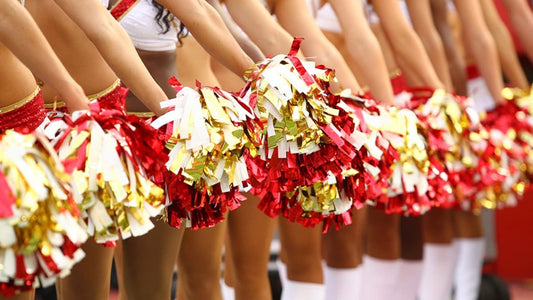Cheerleading is not just about pom-poms and high kicks; it's a sport that requires dedication, skill, and mental toughness. In fact, the psychological aspects of cheerleading play a significant role in building confidence and resilience in athletes. Let's delve into how this high-energy activity can positively impact the mind.
Boosting Self-Confidence
One of the key psychological benefits of cheerleading is the boost in self-confidence it provides. Athletes are constantly challenged to learn new routines, perfect their skills, and perform in front of large crowds. This process of setting goals, overcoming obstacles, and achieving success can significantly enhance self-esteem. In a study conducted by the National Cheerleaders Association, 83% of cheerleaders reported feeling more confident in themselves after participating in the sport.
Developing Resilience
Cheerleading also helps athletes develop resilience, the ability to bounce back from setbacks and challenges. Whether it's mastering a difficult stunt or dealing with a disappointing performance, cheerleaders learn to persevere in the face of adversity. This resilience not only serves them well on the mat but also in other areas of their lives. According to the American Association of Cheerleading Coaches and Administrators, 92% of cheerleaders believe that the sport has helped them become more resilient individuals.
Building Teamwork Skills
Another important psychological aspect of cheerleading is the emphasis on teamwork. Cheerleaders must work together seamlessly to execute complex routines and support each other both on and off the mat. This focus on collaboration and communication fosters strong bonds among team members and teaches valuable interpersonal skills. Research published in the Journal of Applied Sport Psychology found that participation in team sports like cheerleading can improve social relationships and enhance teamwork abilities.
Enhancing Mental Toughness
Cheerleading requires mental toughness, the ability to stay focused, motivated, and resilient in the face of pressure. Athletes must maintain a positive attitude, push through fatigue, and stay composed during high-stress situations. This mental fortitude not only improves performance in cheerleading but also translates to other areas of life. A study published in the Journal of Sport & Exercise Psychology showed that cheerleaders exhibit higher levels of mental toughness compared to non-athletes.
In conclusion, the psychological aspects of cheerleading play a crucial role in shaping athletes into confident, resilient, and mentally tough individuals. From boosting self-confidence to developing teamwork skills, the benefits of participating in this dynamic sport extend far beyond the physical aspect. So, the next time you see a cheerleader in action, remember that they are not just performing flips and jumps – they are also building a strong foundation for success in life.







